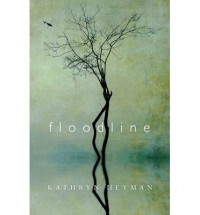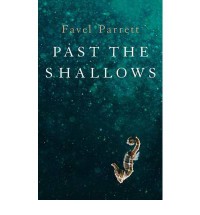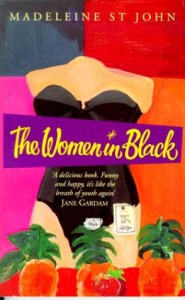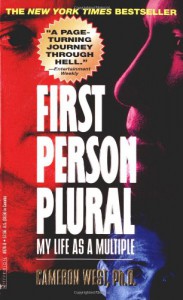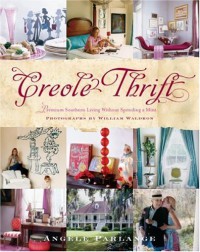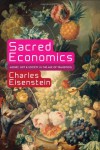Reservoir Dad - Clint Greagan
 How do you write about sweetness without it sounding like schmuck? Or family life without it sounding boring? It's hard doing sweet. It can so easily go too far, so that instead of a delicious fairytale you get Disney, remanufactured so as to not scare the children and in the process shaking off important clumps of dirt that are meant to be psychological pointers. Fairytales are meant to be illustrated psyche-walks, where you play all the parts.
How do you write about sweetness without it sounding like schmuck? Or family life without it sounding boring? It's hard doing sweet. It can so easily go too far, so that instead of a delicious fairytale you get Disney, remanufactured so as to not scare the children and in the process shaking off important clumps of dirt that are meant to be psychological pointers. Fairytales are meant to be illustrated psyche-walks, where you play all the parts.
Caramel tastes best with salt. And this book is nothing like boring. It's the way fairytales are meant to be, with light, with a bit of dirt, with high-note sweet that aches, midline vanilla, and a few bottom notes of aching grief.
Reservoir Dad isn't a fairytale or a fable, though. It's a life. Five of them, joined together. Clint Greagen lives in Reservoir, in Melbourne's slightly-inner north. (When he asked what Reservoir was like as a place to live, the real estate agent told him, "It's getting better." Reservoir was once the sort of place that if you called it Reservoir, using the French pronunciation, you'd be laughed off for being a wanker. Melbourne house prices being what they are, though, these days old-school Reservoorians have migrated out further, to Craigieburn).
Clint and his wife, Tania, have bought their first house. Then, along comes Archie. Then Lewis. Then Tyson. And then Maki. Not long after Archie is born, they make the decision for Tania to return to her job as a physiotherapist and part-time lecturer and for Clint to take on the role as a stay-at-home dad. This book is the story of those days.
How refreshing that he recounts it with such honesty. I wonder, in broadly speaking terms (this caveat needs insertion when about to talk about gender), if Clint was a woman would he have deleted more of the times he's going nuts, the times he's losing it? Or, if he did, would he hang onto the guilt for as long as many women would? I know I'm generalising here, but these are some of the thoughts I wondered while reading Reservoir Dad.
It's a bloody funny read. Highlights of the Minutes of the Northern Dads' Group are illuminating:
11:20 - I make and transport fresh coffee to every Dad and listen in. The topics being covered by each group are as follows: Jack and Ben: global warming, backyard maintenance and sex; Dan and Joe: hangovers, kids, cricket, immunisations and sex; Kelvin and Simon: children's pop-up books, how great kids are and sex
12:00 - A child poos. All Dads present sniff their child's bum. Eventually the culprit is located and excluded from the group until the proper corrections have been made.
12:30 - The children and Dads all gather around Ekko to pat him and learn proper pet-handling behaviour. In his excitement the dog rolls over and, along with its belly, exposes a long lipstick-shaped penis. Ben's son reaches for it immediately. All the Dads freeze on the spot and scream in horror which, thankfully, shocks the dog back into an upright position.
12:45 - A hotly fought competition ensues between the three Dads and their children to see who can leap from the porch and land the furthest from the rose bushes.
12:46 - One hamstring says ping
There's some interesting stuff in here about the politics of stay-at-home dadding. Of those who speak down to him. Of how trailing around after your partner is home from work raving for 30 minutes straight is not so much a gender issue as it's a need-adult-convo-now issue.
On the stress and feeling of complete uselessness during Tania's labour to bring Archie into the world, and the appearance of the anaesthetist:
He wore blue pants and a blue shirt, just like the rest of the employees in the hospital, and in another building he may have even passed as an inmate in a low-security prison. But I'll always remember him as the man who entered the room standing atop two pure white draught horses, whose clip-clopping sent the message of hope down the halls and into every room of the birthing ward. He was wearing the purple and gold robes of kingly eminence. The dull, off-white walls around us sparkled with the magnificence of his crown. I rubbed the weariness from the muscular buttocks of his steeds and fed them the finest muesli as he honoured us both by slaying the monster I had only been able to wail at. As he took his leave from our lives I fell to one knee and whispered, 'My Liege.'
And on change-table Archie:
He defecates like a startled duck. He wees straight into the air almost every time I change his nappy, which is freaky to say the least, although I was surprisingly nonchalant when he jet-forced a sample taste - mid-stream strength - directly into my mouth.
He has a bulbous pot belly - a direct inheritance from Tania's dad - with light blue veins running over it like patterns on an ancient Greek milk jug, and when I combine that with the wide-open eyes rolling and jolting about in their mad search for focus, I am unable to stop my mind from playing random image association games ... here comes E.T. and Fat Albert on his spindly little legs saying, 'Hey hey hey!'
Self-deprecation and hyperbole are a delicious combination. Intersperse them with moments of pure, aching love and that very human emotion of wishing for things to last forever and this book has some heart-punching moments. On a bedtime conversation with Tyson, four:
I assumed he was mostly asleep and so I whispered, 'Luv ya, mate.'
From my vantage point behind him I saw his cheek rising with a smile.
'Why?' he said.
I was immediately overwhelmed by a sense of wonder and longing. In this dark room, on the bottom bunk, with the likelihood of another sleep-interrupted night ahead, came the prospector's pan rising above the surface of the stream, the glint of gold already visible.
It was the expectation I heard in his voice, I think, and his smile that made me aware of the opportunity to affirm something that would last a long time for the both of us - maybe forever. 'Just because I love you, mate,' I answered. 'And because you make us all laugh. And because you're such a great dancer ... especially to Gangnam Style. And because you jump so high. And because you use snappy crocodile fingers when you draw. And, do you know, when you're away at kinder I miss you so much and can't wait to see you again.'
And that was enough. As I watched him wriggle his head back and forth to reach further into the comfort of the pillow I was fully aware of how little time I had left. All the rooms Tania and I have filled will one day be empty. The beds of our children - those I often groan with exhaustion to climb into - will be gone.
Greagen has lovely-honed observation and poignancy. On Archie as a new baby:
His tongue creeps out past his lips, then draws back inside, then creeps out again, and I get a little glimpse of who he might be because it seems to ignite some curiosity. He holds still at first, enthralled by the slimy sensations firing around the edges of his mouth but when his tongue retreats he starts panting in his excitement to feel it again and harnesses the energy in his limbs just enough to make his elbows shudder like wings buffetted by a steady breeze. All the effort causes him to vomit a little, and as I wipe it away I panic: What if Tania and I are killed in an accident?
On a quickie with the wife:
... I've lain there afterwards, used and glowing, comparing her attitude and approach to that of a black widow spider, except that instead of eating me once she's finished she can just make a sandwich or open a packet of Cruskits.
Some funny moments comes from the eight months the family spend living with Tania's parents while they have their house rebuilt. Sexual frustration, the stress that comes with living in your in-laws house exacerbated by your now-four children taking over? Leads to paranoia. And murderous intent. Living in close quarters with someone, everything grates. When it's your mother-in-law, tripled that. This is why you put her tongs in the dishwasher - you know it will drive her crazy and keep you sane. It's only right when she insists on stirring her early-morning coffee so that it "sounds like she's pushed a woodpecker's head into the cup and shoved a finger up its arse."
Clint never shies away from the stress and mind-boggling craziness and the relentless, boring grind of raising kids ... or the way the love pours in and melts his heart all over again. The way the love is so strong that it holds back the desire to do harm, to go bonkers. It's refreshing. Surely every person on that crazy morning run must desire to "stay home and watch DVDs and eat Vegemite scrolls and maybe start growing some marijuana plants as the first step to raising four career criminals."
This book came from the crazily-popular blog of the same name, which Clint started writing as a way of processing his stuff. Every crazy person knows that writing helps make you at least a little saner, right?
So how do you represent sweetness and the everydayness of raising kids? How do you do it honour, so that it doesn't smarm or bore? Just have a dad hopelessly in love with his wife and his kids write to tell you about it direct. None of that 1970's distant dad disconnected from his emotions here. Clint loves his kids and loves being a dad and he'll warm your heart telling you about it, and about how vulnerable it makes him feel. ('This feels illegal,' he says to Tania as they leave the hospital with newly-born Archie). He'll also lay it out on a red satin pillow of self-deprecation, hyperbole, honesty, a little bit of tragedy, a decent nod to the haunting moments of our lives, and a wicked sense of humour and that's why it works so well. It reminds you again of how normal bringing up children is and how damn awesome everyone who does it at least nominally well is. Even if your taste in 80's music is outright cruddy.
Published by Random House, July 2014


